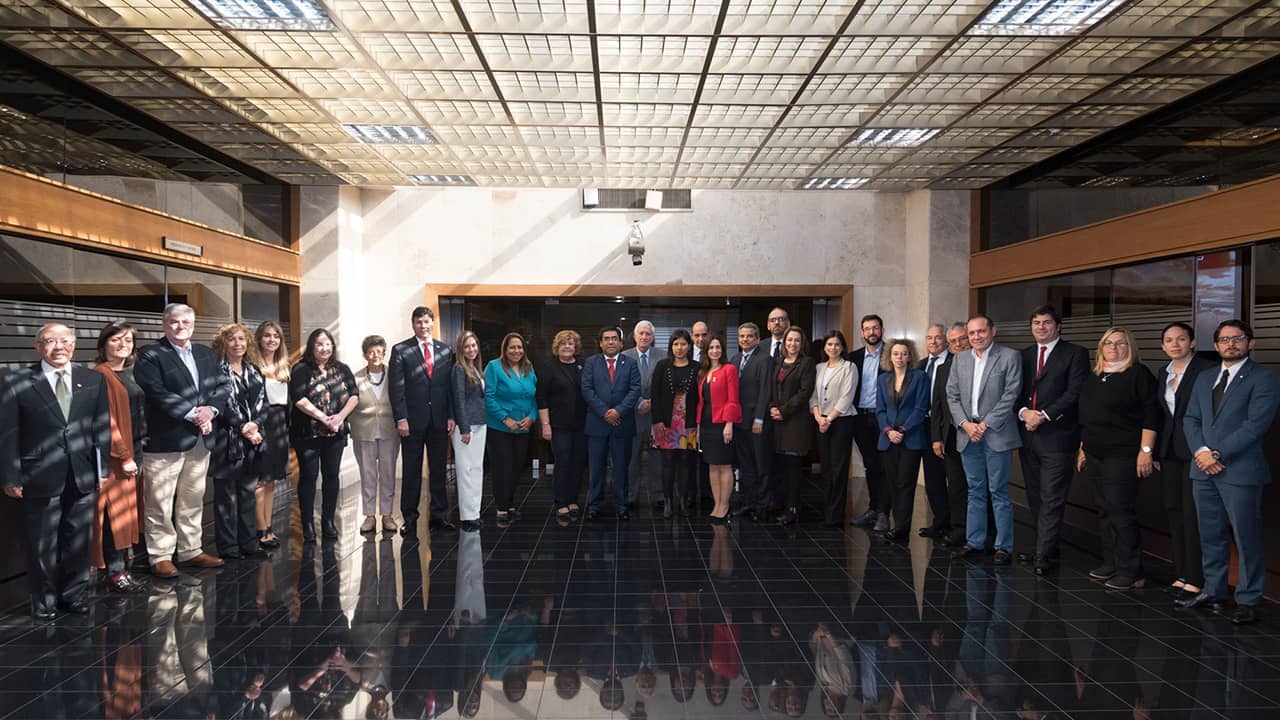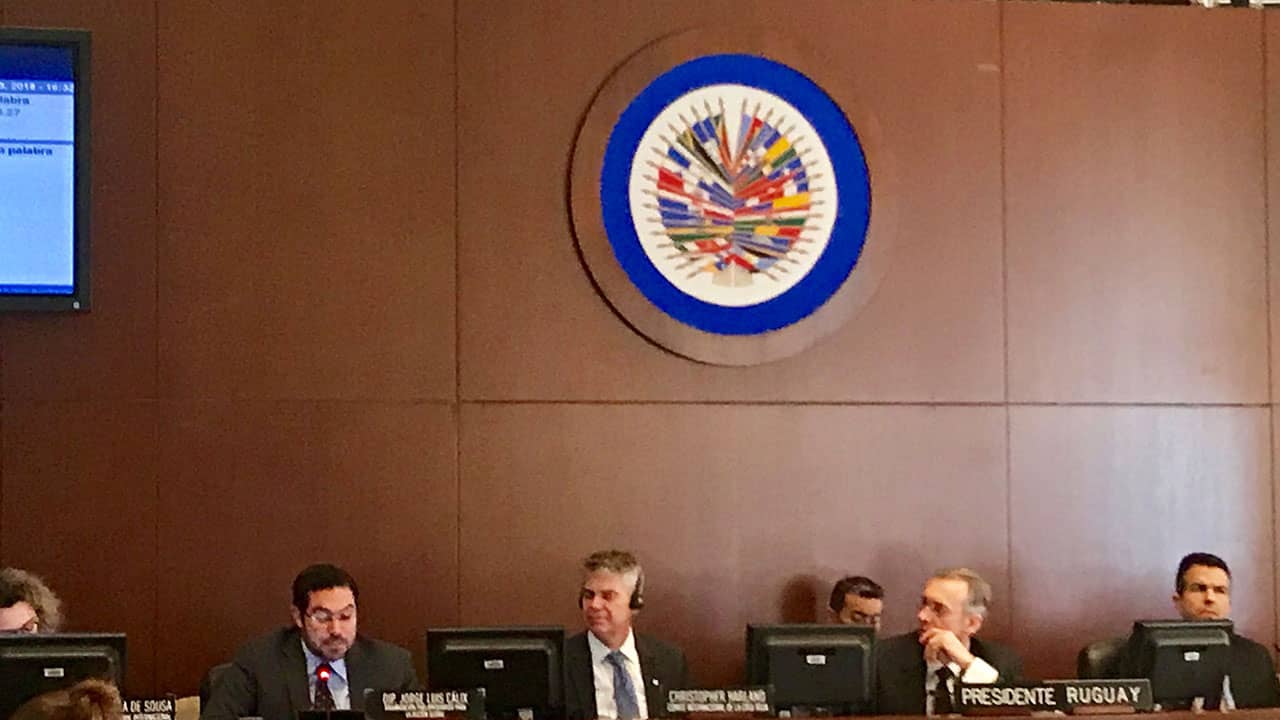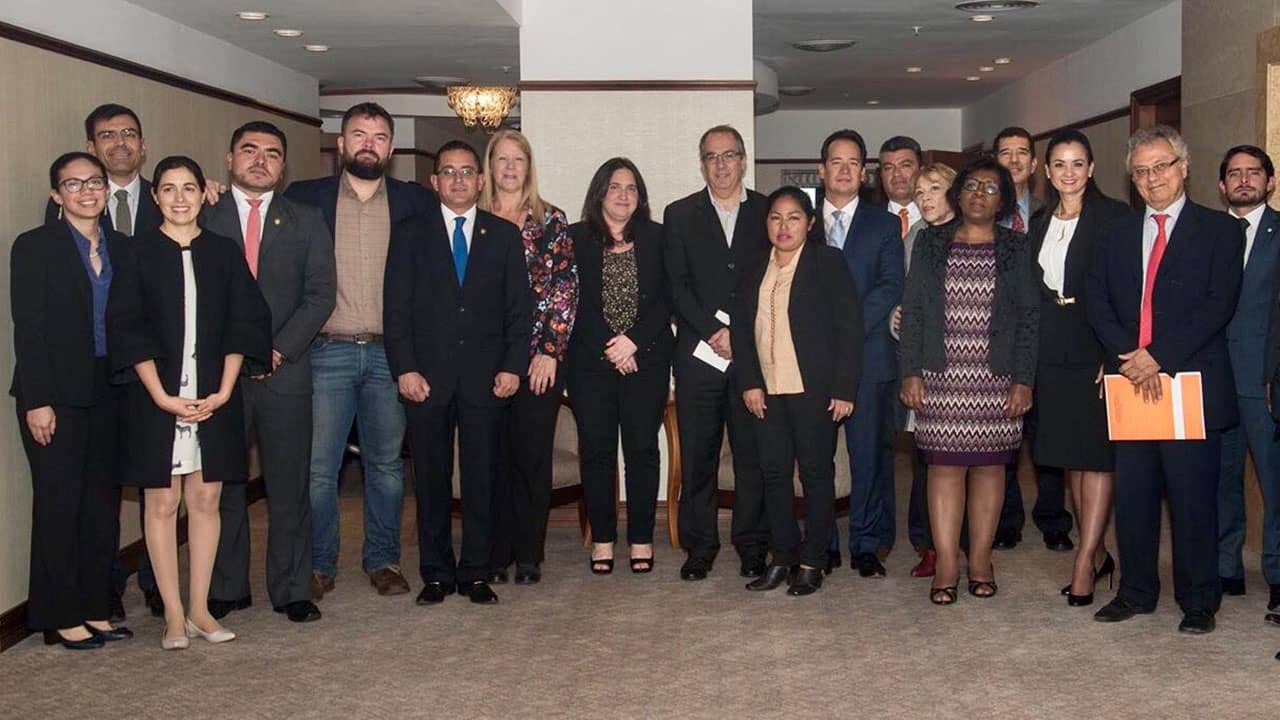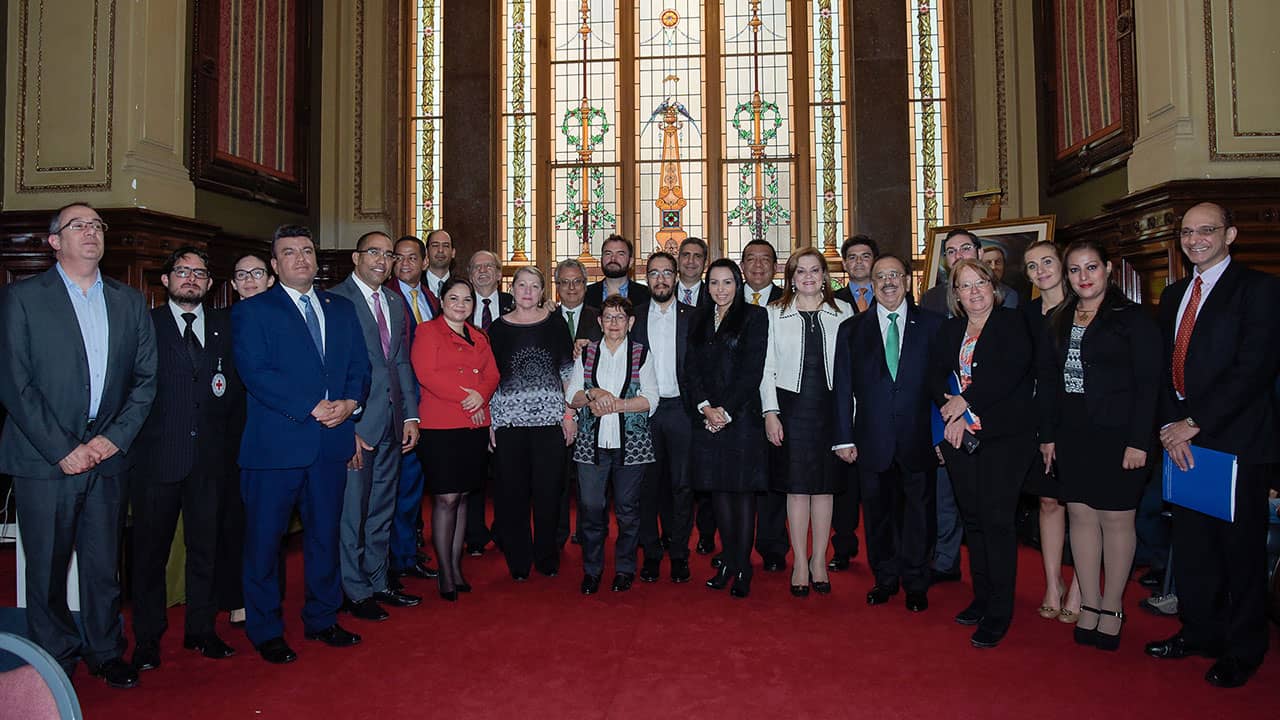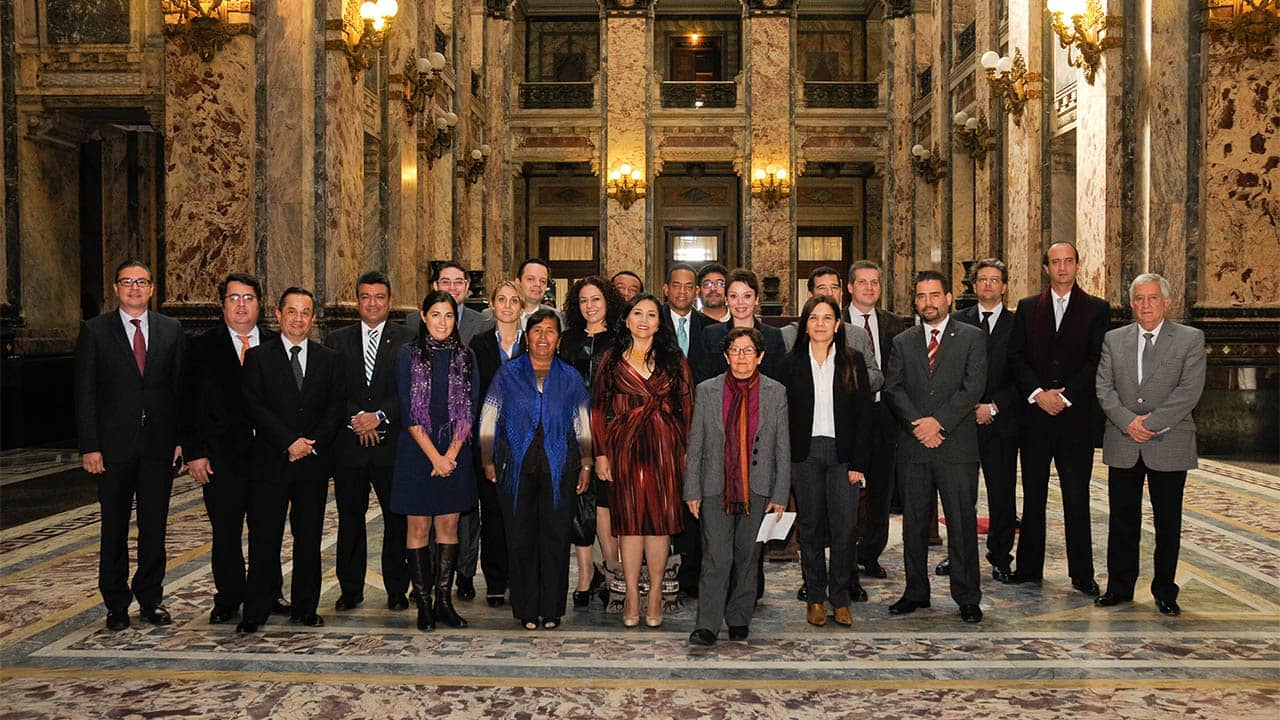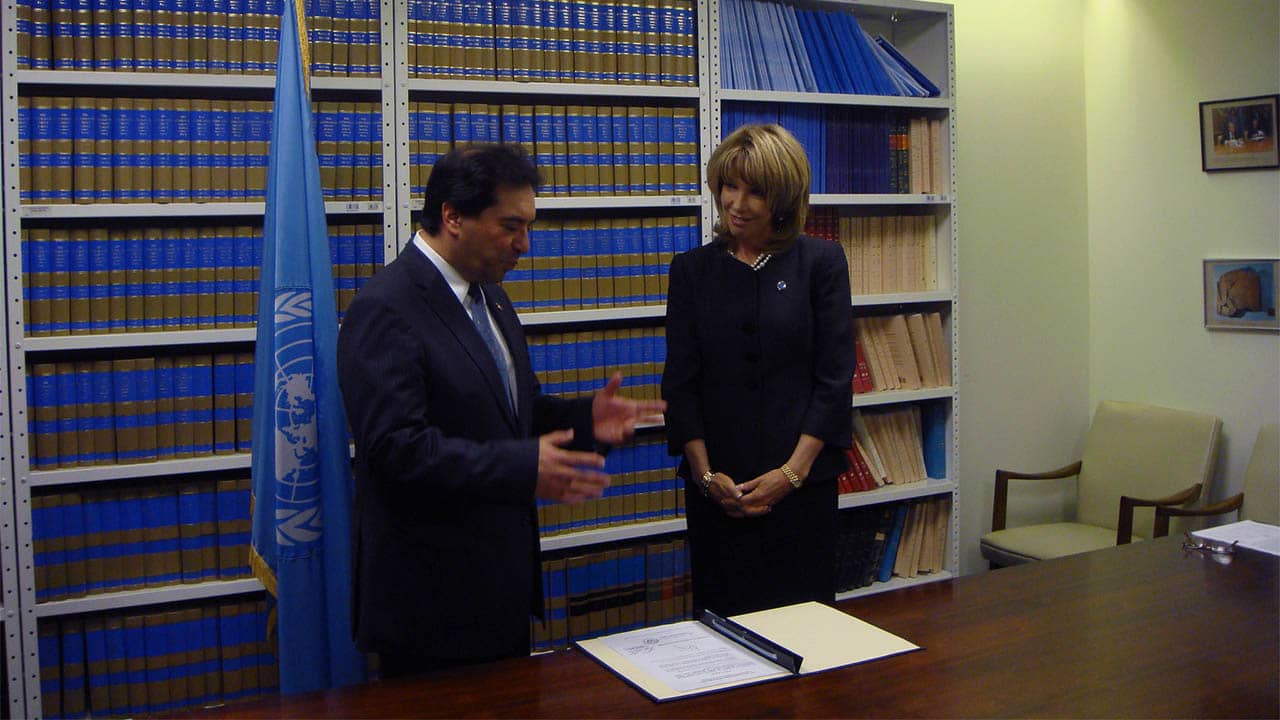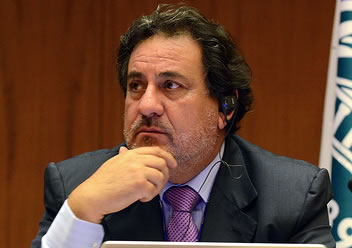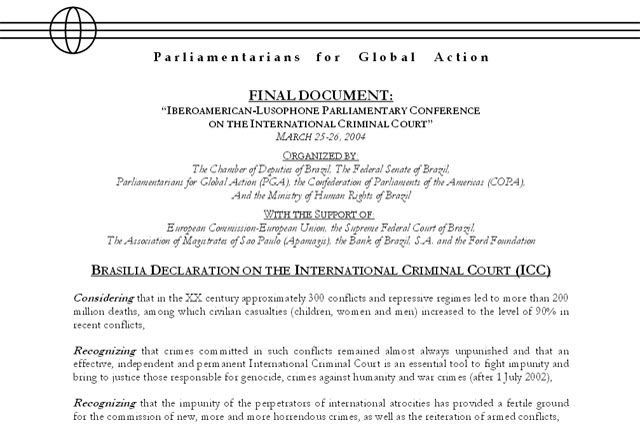Guatemala after 36 years of civil war, from 1960 to 1996, became the 121st State Party of Rome Statue. The decision-making process that culminated in the deposit of the Instrument of accession by Guatemala was long and arduous, in spite of the ongoing support of the Government and the mobilization of civil society and parliamentarians to join the ICC.
The ICC accession bill was blocked in Congress since 2002 and despite a multi-party agreement brokered on this bill since 2006 by PGA member, Dip. Antonio Arenales Forno (currently Minister of State for Peace), regrettably Parliament failed continuously to adopt it.
It was not until January 2012, that newly elected President Otto Perez Molina and Vice President Roxana Baldetti managed to create consensus in the Congress to have the bill approved. In his previous capacity as Senator, President Perez Molina had participated in an important ICC event arranged by PGA in Guatemala City.
PGA has worked with Parliamentarians of Guatemala to fight against impunity for the most serious crimes and currently is working with Dip. Oliverio Rodas for the domestic implementation of the Rome Statute. After many years of consistent support by different stakeholders, newly sworn in Guatemalan president Otto Pérez Molina. On 19 January 2012, the Plenary of Congress approved the ICC bill on first reading, and the bill was subsequently approved on a second reading on January 24th, as well as on the third and final general reading on January 26th.
Rome Statute
Guatemala deposited its instrument of accession at the UN Treaty Office on 2 April 2012.
Kampala Amendments of 2010
In the preliminary proposal of ICC bill to implement the Rome Statute the crime of aggression was not included, however the working group on implementation was strongly considering its inclusion. During the 2012 Assembly of States Parties, the delegation of Guatemala indicated that the government is considering the ratification of the Kampala Amendments.
Status on the domestic implementation of the Rome Statute
Following Guatemala’s accession to the Rome Statute, a technical working group on implementation was established and tasked with producing draft legislation implementing the Rome Statute crimes, principles and cooperation mechanisms into the domestic legal order.
The working group is led by a PGA member, Dip. Oliverio Rodas and composed by the Guatemalan Coalition for the ICC, a representative of the MFA, the National Human Rights agency (under the Presidency), the National International Humanitarian Law Committee. The Bill is still under revision by this Working Group.
On 9th July 2015, during the ICC Seminar held in Costa Rica, Dipu. Garcia Rodas, agreed to send the draft implementation bill to the Parliament before the end of the year.
Agreement on Privileges and Immunities of the Court (APIC)
Guatemala has not signed the Agreement on the Privileges and Immunities of the Court.
Additional Agreements
Guatemala signed a Bilateral Non-Surrender Agreement (BIA) proposed by the United States regarding the surrender of persons to the International Criminal Court on 10 November 2004.
Progress and PGA Action
July 2015 During the ICC seminar held in Costa Rica, Garcia Rodas, MP, committed to send the draft implementation bill to Parliament before the end of the year.
On July 17 July 2013, Guatemala co-signed of a statement on the International Criminal Justice day calling for the UN to continue supporting ad-hoc tribunals, special tribunals established after arrangements between States and the organization and the ICC. Also,
it recognizes the role of the ICC in maintaining international stability, praises its proceedings as impartial and unbiased, and invites other countries to accede to the Rome Statute.
On the 2 April 2012 Guatemala deposited its instrument of accession to the Rome Statute on 2 April 2012.
In October 2012 during the Assembly of States Parties, the delegation of Guatemala indicated that the government is considering the ratification of the Kampala Amendments.
January 2008 "Presidential term of Alvaro Colom (UNE, Union Nacional de la Esperanza) begins. New government proves to be favorable to the ICC, yet no action on the ICC taken Vis a Vis Congress. Term of President Colom will end on December 2012.
December 2007 Amb. Arenales travels to Guatemala to promote discussion on the ICC bill in the last days of the Congressional period. No discussion takes place.
January 2007: Visit of ICC President Kirsch to Guatemala. PGA facilitates a private meeting between the ICC President and Sen. Perez Molina, who would have become the President of Guatemala moving to ratification as a priority in his year 1 of Presidency in 2012
On 16 August 2006 Minister of Foreign Relations, Gert Rosenthal meets with members of the Foreign Affairs Committee and informs of the administration’s priority of ICC ratification.
On 12 December 2005 Congress receives from Government the Ratification Bill of the Non Surrender Bilateral Agreement with the US.
Parliamentary Action
On 9th July 2015, during the ICC Seminar held in Costa Rica, Dipu. Garcia Rodas, agreed to send the draft implementation bill to the Parliament before the end of the year
August 2014, Dip. García Rodas participates in the PGA seminar on the implementation of the Rome Statue held in the Chamber of Deputies of Uruguay, and renew his commitment with the full implementation of the Statute in Guatemala. (Brian: please add link to the Montevideo Seminar 2014).
January 2012 Presidential elections 2nd round Otto Perez Molina defeats Manuel Baldizon. Harold Caballeros (Fletcher School) is appointed Minister of Foreign Affairs.
September-2011 Parliamentary elections UNE 51 seats GANA 35 PP 31 URNG 2.
24th September 2008 Speech by Alvaro Colom, President of the Republic of Guatemala at that period, at the General debate during the 63rd Session of the UN General Assembly. He reiterates Guatemala's commitment with the concept of the responsibility to protect "our respective populations from genocide, war crimes, ethnic cleansing and crimes against humanity", however does not mention the ICC by name.
On January 2006 Dip. Reinhart, Chair of the Human Rights Committee informs of studies on the ICC made by her Committee and calls for a final deliberation in plenary.
On 16 January 2006 Dip. Antonio Arenales from the FRG broke a deal between left wing MPs and military MPs within the Foreign Affairs Committee in order to join and approve both the non-surrender agreement with the US and the ICC bill.
On 9 August 2005 the Central American Parliament (PARLACEN) adopted and transmitted to the Guatemalan Congress its Resolution AP/3-CLXXI-2005 calling its congress members to ratify the Rome Statute and respective implementing legislation. The resolution was submitted to the Foreign Affairs Committee for deliberation. No decision was taken.
9 June 2005 Chair of the Human Rights Committee, Dip. María Reinhardt (ANN) requests the Congress’s Board to grant her committee also competence to discuss the ICC Ratification Bill. On 12 July 2005 her request was rejected by the plenary and the competence remained within the Foreign Affairs Committee.
Human Rights Council Universal Periodic Review
Guatemala was reviewed during the 14th session of the UPR in October 2012. In the second cycle review Guatemala accepted the recommendations regarding the implementation of the Rome Statute and the ratification of the Agreement on Privileges and Immunities of the Court made by Slovakia and Sweden and noted the recommendation regarding the ratification of the Kampala Amendments to the Rome Statute made by Liechtenstein. During the 1st cycle of the UPR, Guatemala accepted the recommendations regarding the ratification of the Rome Statute.
Additional Relevant Information
ORGANIZATION OF AMERICAN STATES
As a member of the Organization of American States, Guatemala has supported the promotion of the International Criminal Court through the adoption of an annual resolution by the General Assembly of the OAS, as well as by the holding of a high-level working meeting within the Political and Juridical Affairs Committee of the OAS.

